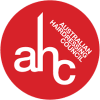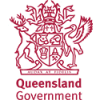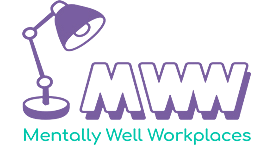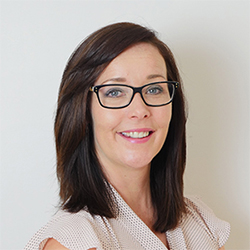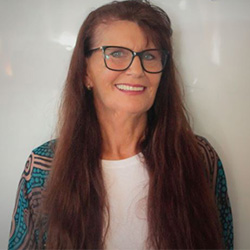Menopause is often culturally looked at as a taboo topic. It is also, unfortunately, grossly misunderstood in terms of what it actually means, and its effects on a woman’s psychological health.
The term “menopause” is often simply used to reference the biological process signalling the end of reproduction. In short, when ovaries stop producing hormones and periods stop. However, there’s a transition stage prior to menopause that begins far before any ‘classic’ symptoms appear. This is referred to as “peri-menopause.”
The psychological effects of peri-menopause
Peri-menopause can be the stage where women will suffer the most psychologically. This is often due to a lack of understanding around what is happening biologically, women being dismissed as “too young” to be undergoing these changes, or simply being embarrassed to speak up or to ask for help. Physical symptoms of menopause often present much later (up to five years), after the onset of psychological symptoms of menopause.
When women experience anxiety, depression, memory loss, brain fog, panic attacks, hot flushes, insomnia – these are neurological symptoms. They start in the brain. Some women will later say of these peri-menopausal symptoms, “I thought I had early onset dementia!”
Peri-menopause and menopause is a restructuring of the brain, much like a renovation. The brain is telling sufferers “I’m under stress”. Brain energy levels can actually drop by up to 25% during this transition.
Common mental health symptoms during menopause
Changes in your hormones during menopause can impact your mental health as well as your physical health. You may experience feelings of anxiety, stress or even depression.
Peri-menopausal and menopausal symptoms may include, but aren’t limited to:
-
Anger and irritability.
-
Anxiety.
-
Forgetfulness.
-
Loss of self-esteem.
-
Lowered confidence.
-
Low mood, and/ or feelings of sadness or depression.
-
Poor concentration – often described as ‘brain fog’ and/or “lost words”.
Many women experiencing perimenopause or menopause will also experience problems with sleeping. Lack of sleep and fatigue can also make symptoms, including irritability, ability to concentrate or anxiety, much worse. In fact, it’s often these sleep changes that are the first symptoms of the menopause cycle a woman might experience.
A symptom that is rarely, if ever talked about is that women may also experience intrusive and negative thoughts, and for some sufferers, even suicidal thoughts, or suicide itself.
Peri-menopausal signs of depression span a wide range of symptoms. Some symptoms are seen as ‘typical’, while others are more unusual. The cognitive symptoms of paranoia and irritability are more marked in peri-menopausal depression compared to symptoms of major depressive disorders seen in men or younger women.
Understanding the brain and menopause
Building on your knowledge of even the basics of how the brain and the process of menopause are so heavily interlinked goes a long way towards treatment and understanding what’s happening.
Estrogen production is central to reproduction, but did you know that the hormone is central to the brain’s operation too? Brain function is heavily governed by reproductive hormones such as estrogen, so a dramatic decline in levels during peri-menopause through to post-menopause will of course affect mood and cognitive ability.
Hormone levels are often at their lowest around 3am, and as peri-menopausal and menopausal women are already combatting a dramatic drop in hormones, they may experience intrusive, paranoid or even suicidal thoughts in these early morning hours, but improved mood in the afternoon when hormones are highest. This variation goes through cycles throughout the day and night, and certainly throughout the month.
Neuroscientist Lisa Mosconi, an expert on the links between the function of the brain and menopause, explains in her Ted Talk “Does Menopause Affect The Brain?”:
“When estrogen doesn’t activate the hypothalamus correctly, the brain cannot regulate body temperature correctly. So those hot flashes that women get – that’s the hypothalamus. Then there’s the brainstem in charge of sleep and wake. When estrogen doesn’t activate the brainstem correctly, we have trouble sleeping. Or it’s the amygdala, the emotional centre of the brain close to the hippocampus, the memory centre of the brain. When estrogen’s levels ebb in these regions, we start getting mood swings perhaps and forget things.”
UK research on menopause and perimenopause and its mental health implications in the workplace has shown:
-
Over 70% of women will suffer brain fog.
-
Over half of women in a recent survey reported lower confidence and reduced motivation.
-
7 out of 10 women experience higher levels of anxiety.
-
1 out of every 10 peri-menopausal and menopausal women quit their jobs. These women were commonly at the top of their game on the career ladder.
-
77% of women stated that they found at least one symptom ‘very difficult’.
-
84% of study participants cited sleep difficulties as being the most difficult to manage, 76% cited brain fog and 69% cited anxiety or depressed mood.
-
Almost half the women surveyed hadn’t spoken to their GP because of stigma.
-
Almost half of participants stated that their symptoms affected their ability to do their job.
Australian study findings paint a similar picture as to the mental health impacts on menopausal women in Australia and how they should be managed:
-
The Incidence of depression doubles during the stages of menopause. Although mood shifts are often mild, they can still have a devastating effect on relationships with others, our work and how we view ourselves.
-
There is a high rate of suicide in women aged 45-54.
-
51 is the average age for periods to stop, but this is often the last change to be noticed. Symptoms can start years earlier and aren’t often recognised as peri-menopause.
-
It’s important for health professionals to consider whether women who experience symptoms of depression or anxiety for the first time in their mid-40s are actually experiencing these symptoms in relation to peri-menopausal hormone fluctuation.
It’s important to remind yourself that every woman’s experience through every stage of menopause is entirely different, and each stage can signify different symptoms for each of us. If you think you could be peri-menopausal, then you probably are.
How to improve menopausal mental health
If you are going through these changes, the first thing to do is to start listening to your body.
If you’re over 40 years old and you start to feel not quite yourself or experience anxieties that aren’t normal for you, start monitoring this. Women have cited anxiety symptoms that are often unique to them, such as not wanting to drive at night, feeling overwhelming worry, experiencing paranoid thinking, or even simply feeling a bit “down”.
Monitor when these symptoms occur, on which days of the month and if your periods or menstrual cycle are changing at all. Go online and research symptoms of menopause, as they can be very wide ranging. Heart palpitations, aching joints, burning mouth, itchiness, electric shock sensations and other physical symptoms you wouldn’t necessarily attribute to peri-menopause are often a direct result of the process. Physical symptoms, such as changes to periods, may also not occur for some years after the onset of psychological symptoms.
Consult with a doctor and don’t allow yourself to be dismissed with the old adage that “this is a natural stage of life women go through”. There is nothing natural about suffering. If symptoms persist and begin to affect your life, it’s medical intervention that’s required.
Relief for peri-menopausal and menopausal women
Having a conversation with a qualified medical professional can provide the opportunity to talk about options for treatment and relief of symptoms that cause the most concern. It’s not a good idea to seek advice from social media or friends, often information is outdated or simply not factual.
Lifestyle changes and supplements can certainly help, but many women find that HRT (Hormone Replacement Therapy) can be life changing. There is a lot of scare mongering and historical inaccuracy surrounding hormone replacement therapy (HRT) that has been proven to be untrue, particularly in relation to cancer risk.
When a 2002 study of 16,000 women linked the use of HRT to an increase in breast cancer and heart disease, women stopped using it in their millions — and subsequently suffered in their millions.
Yet, despite this study being scientifically debunked, its damage is still wide ranging. The study’s data was based on women aged 70-79 whose risk of breast cancer was already increased, rather than younger peri-menopausal women. As a result, misplaced fear persists.
Too many women suffer for years before they seek help, often due to stigma or misdiagnosis. During that time marriages can break down, jobs can be lost, and friendships can be damaged. Women often find immense relief of their physical and psychological menopausal symptoms through HRT.
Menopause has an unfortunate social stigma associated with it that was and is contributing to irreparable damage to many women’s lives, and sadly increases the risk of mental health decline and even suicide. Menopause isn’t just about “suddenly feeling hot” or “the odd mood swing” – it’s so much more than those often-superficial societal understandings. Peri-menopause and menopause is a health issue that affects everyone – whether you’re a woman over the age of 40, or a husband, son or co-worker of a woman undergoing these biological changes.
Mentally Well Workplaces is proud to be launching our new “Menopause and the Mind” campaign, and subsequent new training offerings to end the stigma around menopause in the workplace and to support women going through this natural process. Make sure to sign up to our newsletter and follow us on social media to stay up-to-date.
Sources:
https://www.cipd.co.uk/knowledge/culture/well-being/menopause/people-manager-guidance
https://menopauseintheworkplace.co.uk/articles/menopause-and-work-its-important/
